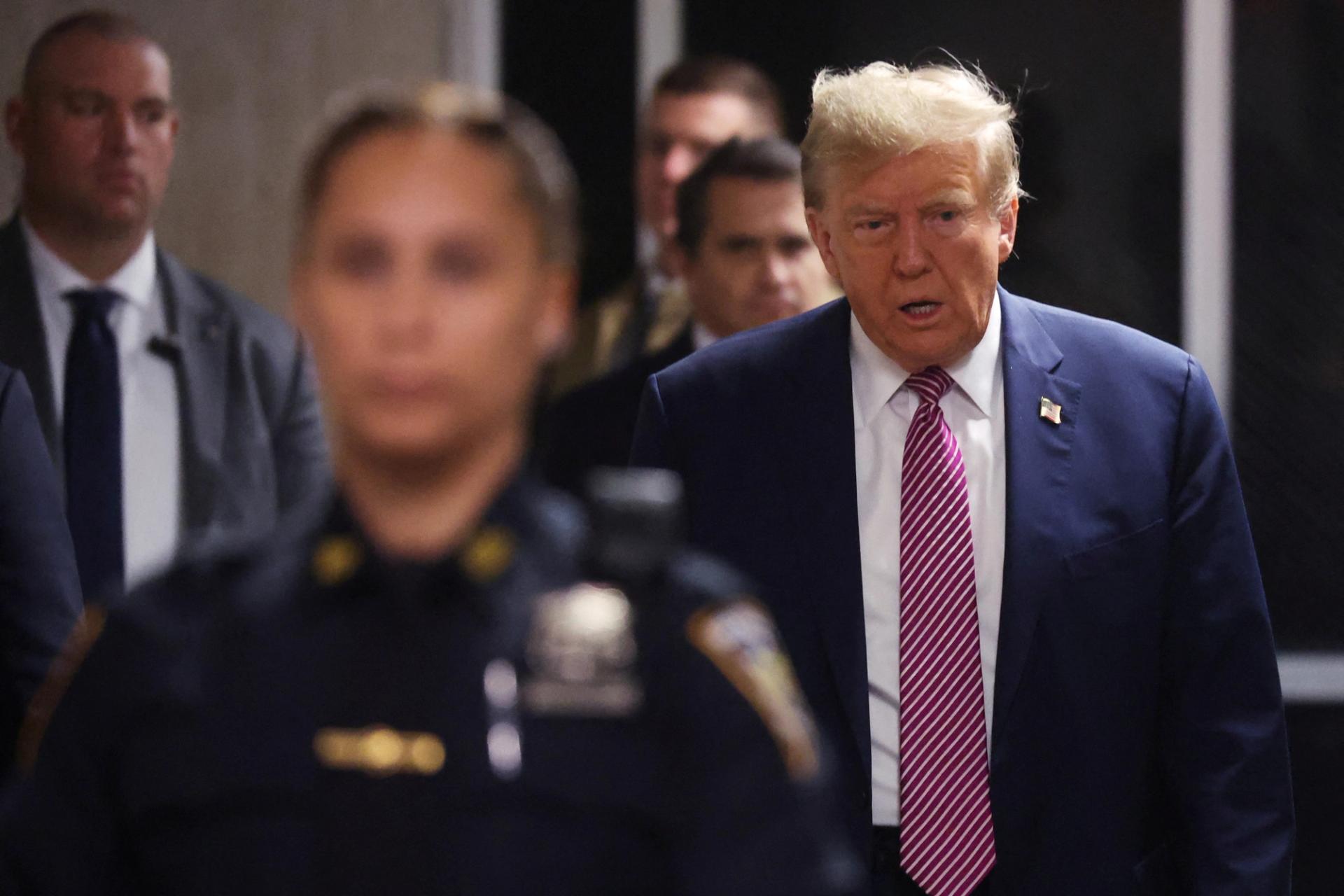The News
Attorneys selected the final alternate juror in former President Donald Trump’s hush money case on Friday, paving the way for opening arguments to begin next week, according to reporters inside the New York court room.
The jury selection process hit delays after two jurors were dismissed Thursday. One dismissal came after reporters covering the trial revealed too much information about the juror, raising concerns that they could be targeted by supporters of Trump.
The former president has repeatedly framed the case as politically motivated and lashed out against the prosecutors, judges, and witnesses involved in his myriad of other legal cases.
Judge Juan M. Merchan scolded the press on Thursday for revealing too many details about the jurors, but the issue has ignited a First Amendment free speech debate since there is little legal mechanisms for the judge to prevent media from identifying the jury.
The New York trial is the first time a former president has been criminally tried in the United States and threatens to exacerbate political divides ahead of November’s presidential election.
The finalizing of the jury for the criminal trial came as a man set himself on fire Friday afternoon outside the courthouse in Manhattan.
Police said that the 37-year-old man had been protesting outside the courthouse for several days and handing out filers with conspiracy theories about both Trump and President Joe Biden. He was transported to a local hospital where he remains in critical condition, although officials said he is likely to survive.
SIGNALS
‘Doxxing’ by media outlets raises questions of intent and ethics
The “doxxing” — or revelation of personal information — of prospective jurors by media outlets has undermined the trial proceedings, according to WIRED. The reason for publishing the personal details likely differs between outlets: conservative network Fox News has taken an antagonistic stance, with host Jesse Watters claiming the jurors are “undercover liberal activists lying to the judge in order to get on the Trump jury” — a claim repeated by Trump on his social media network Truth Social. Other outlets like the Washington Post — which revealed the Manhattan neighborhood where one potential juror lives, his employer and how many children he has — may have done so because political journalists do not know the ethics around reporting criminal trials where journalists typically afford jurors anonymity, one journalist ethicist told WIRED, adding that reporters must consider their larger role in the justice system.
Gag order likely won’t stop Trump from bashing trial
Trump is prevented by a gag order from talking about the jurors or court staff in an effort to protect their safety, and as with previous such orders, the issue has ignited a free speech debate, according to Bloomberg opinion columnist Stephen L. Carter. Some say it is unconstitutional to bar a presidential candidate from talking about his legal woes, a key issue for many voters. But unlike previous gag orders on political candidates, Trump’s current order is “far narrower”: it only pertains to specific comments made by certain people involved in the trial that are intended to interfere with the work of the court. The former president can comment more broadly, for example, to say that the judge is biased, or the district attorney is out to get him, Carter wrote, adding that the narrowness of the order means that Trump “has plenty of space to exercise his need to remain on the attack.” As such, Trump’s “bombast will continue unabated,” he argued.
Jury tasked with deciding intent behind hush money payment
The trial now hinges on proving the intention behind the hush money payments allegedly made to adult film actress Stormy Daniels, who claims she had an affair with Trump and was then paid for her silence, according to Reuters. There is no question that Trump’s personal fixer Michael Cohen at the time paid Daniels more than $100,000. Prosecutors will attempt to convince the jury that the payment was part of a “catch and kill” scheme meant to bury any negative press about Trump ahead of the 2016 presidential election, while the former president’s defense will likely argue it was a personal expense meant to spare him family embarrassment. To secure a felony charge, prosecutors must convince the jury that “Trump knew Cohen’s payment just before the 2016 election was illegal and that the former president was trying to conceal it,” Reuters reported.

